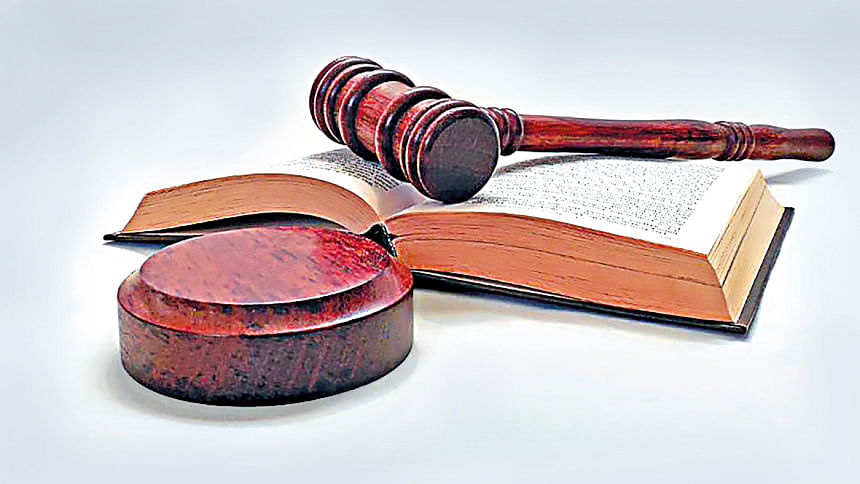Looking at the new CPC through lenses of civil court practices

The Code of Civil Procedure (CPC), the century-old go-to apparatus for the civil law practitioners in Bangladesh, have gone through significant amendments. The amendments by and large aim to streamline civil court's processes, expedite the disposal of civil suits, and ensure more effective and speedy remedy for the litigants.
The most significant change is the introduction of digital methods for the issuance and service of summons upon the defendant/s. This amendment will allow the summons to be issued and served upon the defendant/s by means of SMS, Voice Calls or Instant Messaging service such as WhatsApp, telegram etc. Until now, the archaic method of issuing and serving summons upon the defendant/s is still in practice that, most of the time, protracts the trials. Sometimes, it takes years to complete the service of summons when the number of defendants is many, the addresses provided are either faulty and incomplete, or when the defendants situate in remote areas where the process-servers are less interested to go because no allowance is given, and the defendants intentionally avoid summons or cannot be found. The new method introduced by the amendment will expedite the processes of the Court. However, the persisting digital divide is quite real, and moreover, due care must be taken so that no court staff can harass, annoy or threaten any party to the suit in the name of serving summons digitally.
The new method of serving summons as introduced by the amendment will expedite the processes of the Court. However, the persisting digital divide is quite real, and moreover, due care must be taken so that no court staff can harass, annoy or threaten any party to the suit in the name of serving summons digitally.
Adjournment remains one of the most misused mechanisms for delaying civil suits. Previously, parties could seek up to six adjournments before the peremptory hearing (PH) without incurring any cost, and three more during the PH with costs. However, the recent amendment has reduced the number of permissible adjournments before the PH to four. But amendments in regard to the adjournments during the PH, though proposed, have not been brought finally.
Most of the people coming in the precincts of the civil courts are not educated and are also unable to present their cases before the bench, with majority depending upon their appointed lawyers. This mostly happens when the plaintiff's witness-1(PW 1) or defendant' witness-1 (DW 1) stands at the dock to present the case in light of the Pleadings. However, most of the time the PW-1 or DW-1 cannot spell out the main matters of dispute let alone the genealogy, in-between transactions and other information required to make out the case averred in the pleadings. The new amendment will allow the PW-1 and DW-1 to submit the statement of the pleadings by presenting affidavit. This will save the court's time and expedite the recording of evidence. The other party may contradict such witness in cross-examination. However, this method may become problematic when/if the court proceeds ex-parte (in absence of either party) in any case, regard being had to the fact that the absent party will not be there to cross-examine the witness to contradict his statement of pleadings.
Helpfully, the amendment has integrated the original suit with its execution. Under the CPC, a separate suit, named Execution Suit (ES), was to be filed after obtaining decree in the original suit for the purpose of bringing the obtained decree into effect on the ground. If the ES is filed after two years, notice was to be issued upon the decree-debtor/s. This ES was another means of procrastination and protraction of a civil suit to be finally decided and disposed of. Moreover, the ES was also the reason for the increased sufferings of the parties to the suit, a potential tool of aggrandisement for the lawyers, the court staff, and clerks. With the new integration, the long-drawn complexities of a civil suit are expected to come down to some extent. As per the amendment, the decree-holder will now be able to file an application directly after the declaration by the court of a decree to execute the same. Moreover, the amendment has also introduced a provision for the delivery of immoveable property directly to the decree-holder.
The procedure for execution of a decree in a money-suit was quite complex and time-consuming under the CPC with the provision of attachment of the property or civil arrest of the person against whom a decree was made. As per the original provisions, the subsistence allowances required for the maintenance of such person in the civil prison were to be borne out of the pocket of the person in whose favour the decree was passed. This was quite an absurdity introduced by the colonial law makers. Through the new amendment, all such provisions have been omitted, and new provision has been inserted to provide that all such allowances required for the maintenance of such person in the civil prison shall be borne by the government.
Furthermore, the new amendments have, moderating the rules of dismissal for default, inserted the provision for deciding a civil appeal on merits even if the appellant does not appear on the date fixed, increased the compensatory cost for false and vexatious claims, and lessened the scope of the same defendant to set aside an ex-parte decree more than once (i.e., when the decree was passed ex-parte because the defendant did not appear).
It is hoped that the implementation of these amendments will facilitate the swift disposal of civil suits, thereby helping to reduce the overwhelming backlog of cases currently burdening the civil courts of Bangladesh.
The writer is Assistant Judge, Bangladesh Judicial Service.

 For all latest news, follow The Daily Star's Google News channel.
For all latest news, follow The Daily Star's Google News channel. 



Comments